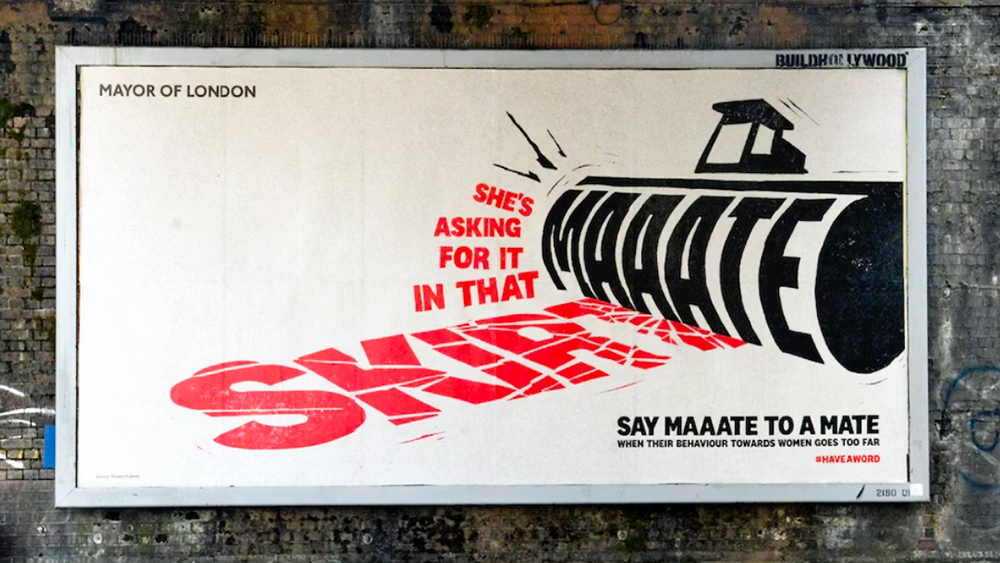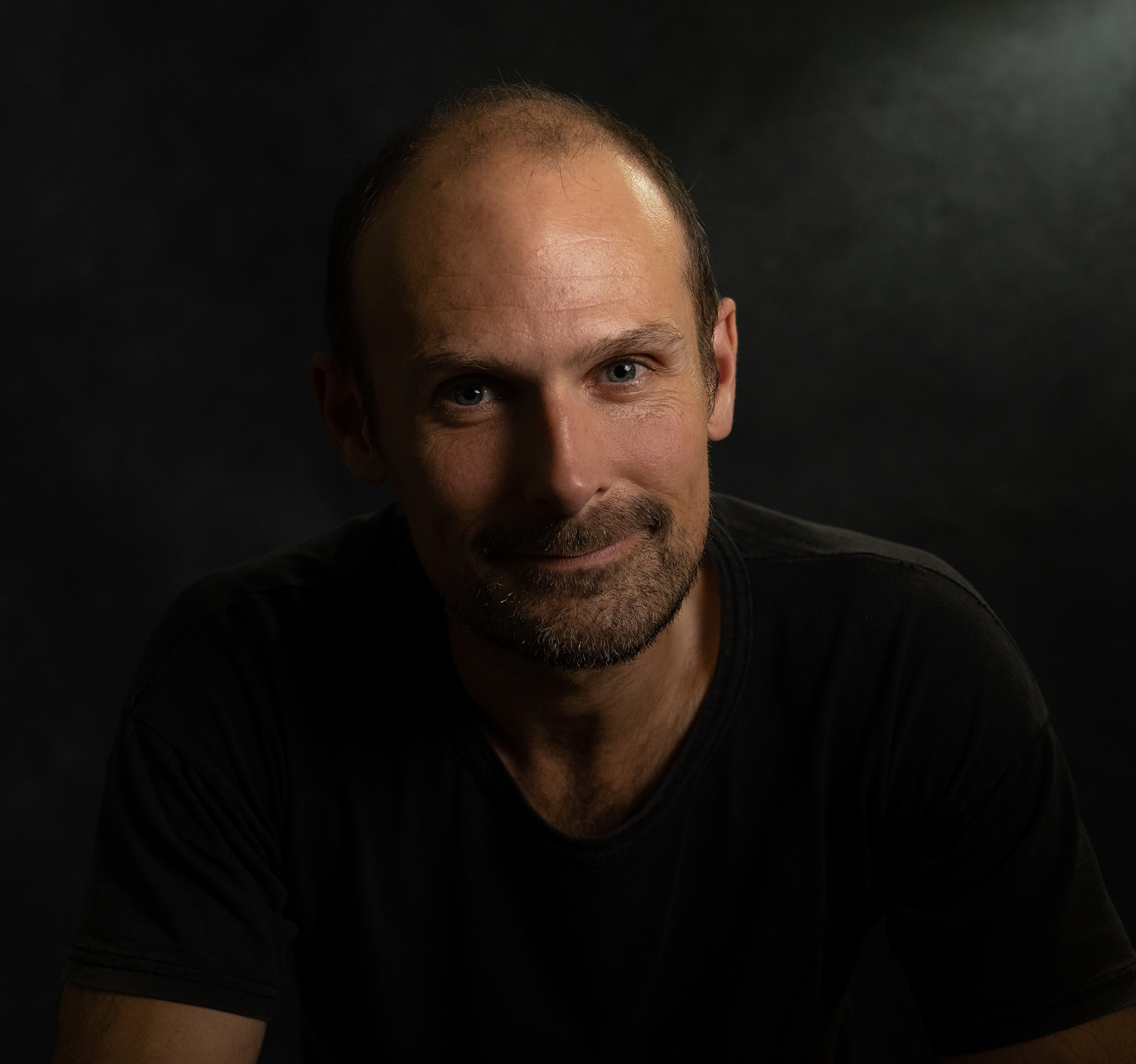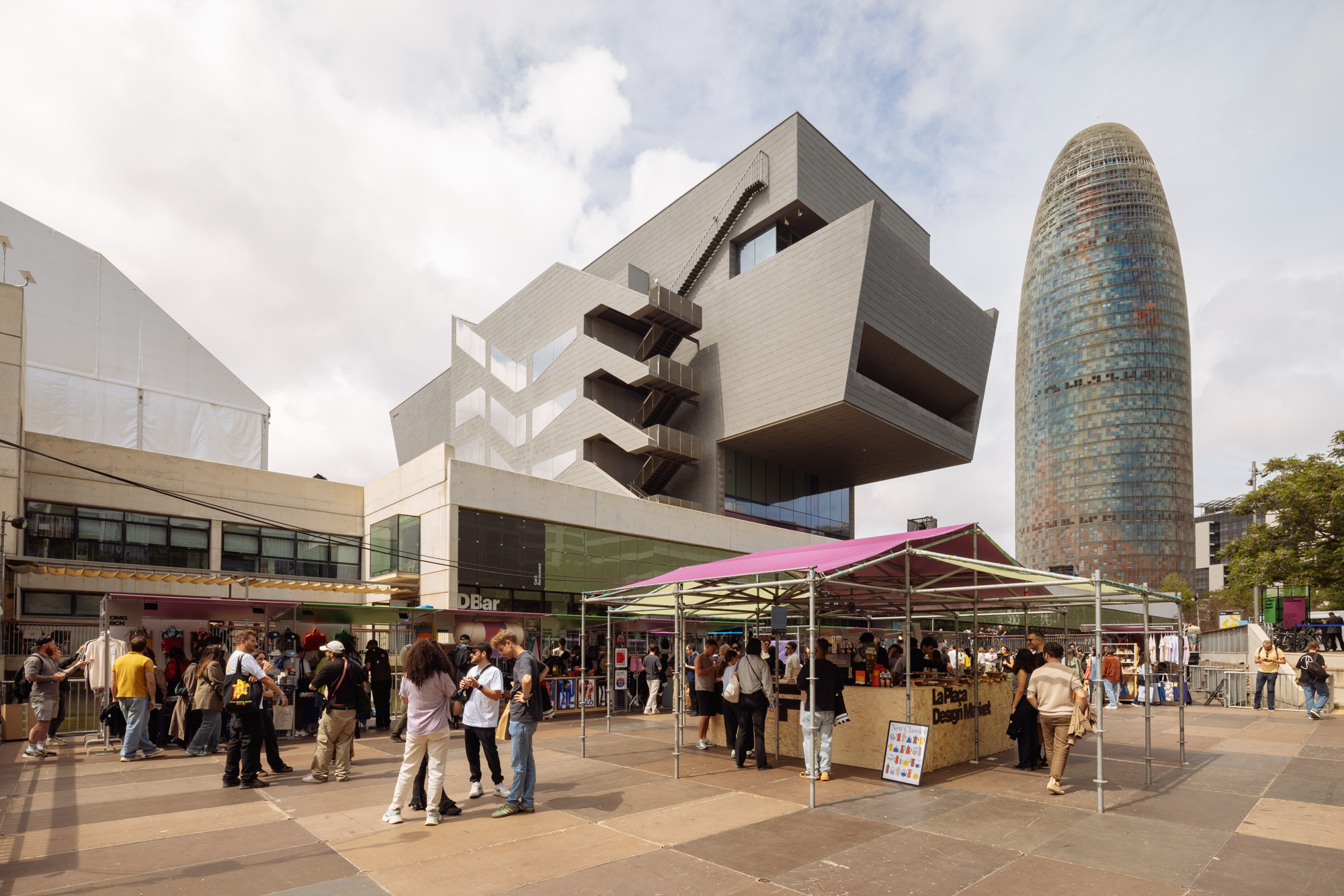London's anti-misogyny campaign sparks debate

Campaigns that seek to change behaviours can be difficult to get right and can easily spark a backlash, as London is discovering. City authorities launched a campaign that aims to encourage men to call out casual misogyny among friends, but it's dividing opinion.
Billboards and videos use colloquial language to try to strike a chord with the target audience. However, some say the casual approach is too flippant, downplaying the seriousness of the issue. The agency behind the campaign has explained its approach (see our pick of the best billboard advertising for more inspiration).
Created by Ogilvy, the ads follow on from last year's 'Have a Word' campaign, this time suggesting what that word could be. They urge men to 'say maaate to a mate' when they witness sexist comments. Billboards show the word 'maaate' crushing misogynistic language, while a YouTube video replaces the usual ‘skip ad’ button with the word ‘Mate,’ inviting the user to stop the sexism being shown on screen.
But some have criticised the approach for making light of a serious issue. An opinion piece in The Guardian said the pieces have the "jokey register of an Oatly or Innocent smoothie ad". Others have criticised it for putting the responsibility on the friend rather than the perpetrator. There are also complaints that it fails to tackle all forms of misogynistic behaviour – if an employee witnesses his boss making sexist remarks, for example, examplehe's hardly going to call him out by saying "maaate".
Something in the multiple A's does not click. People dont say maaate in a serious way. They say more like mate... https://t.co/YvtespaQypJuly 21, 2023
But that's not the aim. Like most campaigns, the aim is to simplify and provide a call to action for one specific relatable problem. That call to action may be cringy and patronising, but it's also memorable and could just have the desired effect.
The mayor of London’s office says research has shown that most men want to intervene when a friend displays misogynistic behaviour but don't do so, be it because of a herd mentality, discomfort, fear of conflict or not knowing what to say. These are the men the campaign aims to encourage.
David Fanner, a consultant at Ogilvy’s Behavioral Science Practice division who led the research, told The Drum: "This is not when someone is being violent, this is low-level misogyny among friends and this is when men can be the most helpful.”
Daily design news, reviews, how-tos and more, as picked by the editors.
Fanner says a common response among men who disapprove of friends' misogynistic comments is to “giggle and move on,” hoping that it goes no further. "We are simply replacing awkward giggle with a better alternative,” he says.
He says this requires a fine level of understanding of the line between harm and humour. He notes that where this line is can vary between people, so the campaign doesn't seek to define where misogyny begins and ends.
He argues that messaging aimed at the perpetrator doesn't tend to work because it’s met with reluctance. “But if three of my mates are telling you that you went a bit far, then that is super powerful,” he says. And in these cases, sometimes a subtle message can be more successful than a blunt one, with a change of tone or a head shake enough to convey the message. “We don’t want to make it too deep or too heavy; as soon as you make it too heavy, you ruin the vibe and men don’t want to do that,” he said.

Joe is a regular freelance journalist and editor at Creative Bloq. He writes news, features and buying guides and keeps track of the best equipment and software for creatives, from video editing programs to monitors and accessories. A veteran news writer and photographer, he now works as a project manager at the London and Buenos Aires-based design, production and branding agency Hermana Creatives. There he manages a team of designers, photographers and video editors who specialise in producing visual content and design assets for the hospitality sector. He also dances Argentine tango.
